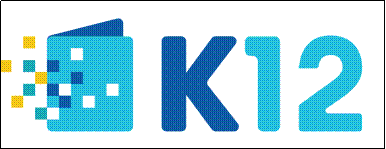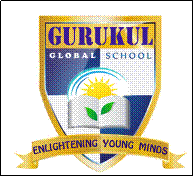



|
SUBJECTS |
CLASSES |
|
K12-MIDDLE SCHOOL-CLASS-12 |
|
Grade 12 Online High School Courses: Forest Trail Academy’s online high school program offers a challenging curriculum which meets the Common core State Standards. The Grade 12 interactive curriculum serves as a college preparatory course and help students to nurture their future education and employment. The 12th Grade course curriculum is structured with a uniform set of learning standards. Using an interactive curriculum, students review concepts in the course that enables them to deepen their knowledge of the subjects essential to their success. The goal of these standards is to prepare all students to become career and college ready. The 12th Grade students will explore the core subjects of English, Mathematics, Science, Social Studies, and Foreign Language along with the wide range of electives courses which they can choose as per career requirement. Students taking individual courses with Forest Trail Academy who are not enrolled in our full-time or diploma program are not eligible to graduate from Forest Trail Academy or receive a high school diploma. Students in twelfth (12th) grade must complete 25% of their courses at Forest Trail Academy in order to attain a high school diploma.
12th Grade Online High School Courses Includes: English: English IV Mathematics: Trigonometry or Pre-Calculus or Calculus Science: Physics or any science elective Social Studies: World Cultural Geography or any social studies elective Course Elective: *Elective – select two (2) electives ELECTIVES Mass Communication Anatomy & Physiology Astronomy Zoology Career Planning Psychology Sociology Spanish III Genetics Computer Applications Foundations of Business Stress Managements Drivers Education Television Production Statistics World Cultural Geography Design Fundamentals (Photoshop) Consumer Math Creative Writing Art History 2-D Art Comprehensive 1 Theatre Environmental Science Anthropology Dance History Appriciation 1
Grade 12 English IV Course Outline (1.0 Credit) To help student understand the importance of historic context in literary analysis. To expose students to a variety of literary genres to further their appreciation of literature. To develop students’ vocabulary-building skills through the use of context clues and word origin/structure analysis. To help students recognize and understand the use of a variety of literary elements (terms and techniques). To enable students to respond to literature in a way that reflects intelligent and thoughtful analysis.
To develop students’ reading, writing, speaking, listening and critical thinking skills so that they may function effectively in any course at university level. To provide a wide range of learning opportunities, including daily and longer-term projects, in order that students of all ability levels may be able to reach their respective potentials and be successful. To foster a classroom atmosphere that emphasizes the importance of respect for others’ opinions, beliefs and ways of being
Writing: sentence structure creative writing analysis essays Speaking and Listening: presentations Language Usage: writing and editing strategies parts of speech Objectives: The student will review and practice grammar and punctuation. The student will develop vocabulary. • The student will practice different types of essay writing. The student will read critically, informatively, and for pleasure. Reading literature and informational texts: vocabulary poetry short stories epics: The Odyssey and Beowulf drama: Macbeth, Oedipus Rex and Antigone novel: The Great Gatsby, The Scarlet Letter, and The Awakening non-fiction essays and speeches Writing: sentence structure literary anaylsis essay research-based essay Speaking and Listening: novel: Wuthering Heights and Frankenstein non-fiction essays Course Outline Introduction Introduction Course Description Understanding Plagiarism Pretest Assignment: Pretest MLA Formatting MSWord 2007 MLA Documentation updates MLA Citation MLA Incorporating Sources Writing about Literature Parts Of Speech Review Sentence Structure Sentence Pattrens Subject/Verb Agreement Ancient Epics Greek Drama Medieval Period The Renaissance Romanticism Victorian Era Course Survey
High School Calculus Course Outline (1.0 Credit) This course includes a thorough study of differentiation and integration with many applications. Limits and continuity are investigated in-depth. The course will emphasize the importance of mathematics studied to date. After completion of this course, the student may wish to take the Advanced Placement Test.
Course Outline Introduction & Review Welcome to Calculus Course Outline Course Syllabus Completing Math Assessments Calculus On The Web Review — Stuff You Should Already Know Pretest Assignment: Calculus Pretest Limits & Continuity Derivatives Applications of Derivatives Integrals Applications of Integrals Sequences & Series Course Survey
High School Physics Course Outline (1.0 Credit) Applied Physics/Technology is a high school course in applied science for vocational-technical and college-bound students. The material studied shows how technical concepts can be analyzed and applied to equipment and devices in mechanical, fluid, electrical, and thermal energy systems. The course is designed for students to explore and apply the principles of technology in a classroom setting with hands-on laboratory activities. Within each chapter are several pages that cover topics such as motion, forces, electricity, magnetism, waves, and quantum physics.
Course Outline Introduction Course Description Plagiarism Discussion Pretest Assignment: Pretest Set the Pace Handout: Pacing Guide Course Links MLA Formatting MSWord 2007 MLA Documentation updates MLA Citation MLA Incorporating Sources Math & Measurements What is Science? Kinematics in 1 Dimension Dynamics in 1 Dimension Kinematics in 2 Dimensions Dynamics in 2 Dimensions Momentum Energy, Work, & Power Mechanics Project Mid-Term Electricity Magnetism Waves Optics Thermodynamics Atomic Physics Physics and Space Test Modern Physics Theory of Everything Project Final Exam Course Evalulation Toll free 800.890.6269
Online High School Elective World Cultural Geography World Cultural Geography Online High School Elective World Cultural Geography encompasses both the physical and cultural aspects of the discipline. Early emphasis is placed on the development and appreciation of physical geographic knowledge including meteorology, geomorphology, and cartography. These skills having been mastered, a cultural approach to the world’s various ethnic regions is addressed during the remainder of the year. Elements including political ideologies, religious beliefs, and unique cultural practices, as well as current situations of the world’s major ethnic regions, are discussed.
At the end of the course, the student should have an understanding of the nations of the world, their location, economies, and major geographic features.
Course Outline Introduction Course Description Pretest Assignment: Pretest Ancient History Review Understanding Plagiarism MLA Formatting Word 2007 MLA Documentation updates MLA Citation MLA Incorporating Sources What is Geography? The Moving Earth Reading Maps Types of Maps Project 1 North America Mexico Brazil Project 2 The West Indies Western Europe Eastern Europe Mid-Term Russia Middle East Southeast Asia India China Project 3 Japan Australia Oceans African Project 4 Final Exam
ELECTIVES Mass Communication Anatomy & Physiology Astronomy Zoology Career Planning Psychology Sociology Spanish III Genetics Computer Applications Foundations of Business Stress Managment Drivers Education Television Production Statistics World Cultural Geography Design Fundamentals(Photoshop) Consumer Math Creative Writing Art History 2-D Art Comprehensive 1 Theatre Environmental Science Anthropology Dance History Appriciation 1
|
